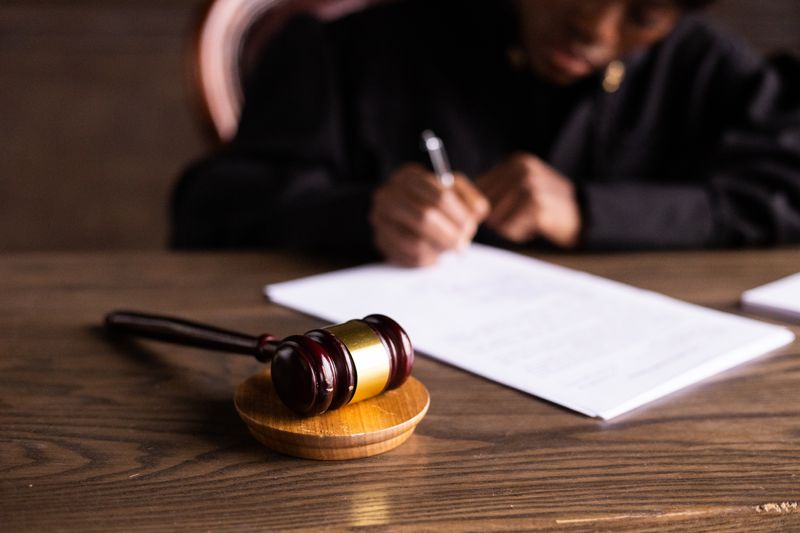Controversial Shooting of Leonard Cure Sparks Calls for Justice and Review
A Tragic Incident Unfolds
The release of body camera footage depicting the fatal shooting of Leonard Cure, a Black man who spent more than 16 years wrongly imprisoned, has ignited renewed discourse on police accountability, racial bias, and the urgent need for justice reform. The incident, which occurred during a traffic stop in Camden County, Georgia, has raised significant concerns regarding the use of force by law enforcement officers and the ongoing issue of wrongful convictions.
According to authorities, the Georgia Bureau of Investigation reported that Cure was pulled over by a Camden County Sheriff’s deputy on I-95 near the Georgia-Florida line. The initial interaction between Cure and the deputy appeared to be cooperative, but the situation quickly escalated when Cure was informed of his impending arrest. The released footage shows Cure refusing to comply with the deputy’s instructions and engaging in a physical struggle, culminating in the deputy fatally shooting him.
Racial Implications and Patterns
Leonard Cure’s tragic death cannot be divorced from the broader context of racialized incidents involving law enforcement. Too often, we witness unarmed individuals from marginalized communities losing their lives or suffering grave harm during encounters with the police. The fact that Cure, an innocent man who had only recently been exonerated, was targeted and subjected to such violence raises profound questions about the inherent biases within societal systems and the criminal justice system.
Furthermore, the well-known civil rights attorney Ben Crump’s involvement in representing Cure’s family underscores the larger issues at play. Crump’s presence signifies the systemic failures that perpetuate injustices against Black Americans, as he has previously represented families in cases that have gained national attention, such as Ahmaud Arbery, Breonna Taylor, George Floyd, and Trayvon Martin. The recurrence of these high-profile cases raises concerns about the regularity with which Black individuals are subjected to excessive force and the need for comprehensive reforms to address these injustices.
A Journey of Injustice and Redemption
Understanding Leonard Cure’s background is pivotal in comprehending the magnitude of this tragedy. Cure’s wrongful conviction and subsequent imprisonment for over 16 years have been attributed to factors such as a faulty trial, overlooked evidence, and a disregard for alibis that could have proved his innocence.
Initially convicted of armed robbery in 2003, Cure was accused of robbing a drug store in Florida’s Dania Beach. After a hung jury in his first trial, Cure was sentenced to life in prison due to his past convictions for robbery and other crimes. However, in 2020, the Broward State Attorney’s Office Conviction Review Unit surfaced new information that highlighted alarming irregularities in the case. Solid alibis that had been previously disregarded, as well as the absence of physical evidence and credible witnesses linking Cure to the crime scene, led to his release from prison in April of that year.
In December 2020, Cure’s conviction and sentence were officially vacated by a judge, cementing his wrongful imprisonment as a grave miscarriage of justice. The revelation of these startling facts not only casts a shadow over the entire criminal justice system but also emphasizes the importance of scrutinizing convictions and ensuring that innocent lives are not destroyed due to systemic shortcomings.
Seeking Justice and Reform
Urgent Need for Police Accountability
The release of the body camera footage presents an opportunity for a thorough investigation into the actions of the sheriff’s deputy involved in the shooting of Leonard Cure. It is crucial that the Georgia Bureau of Investigation, along with relevant authorities, conducts an unbiased and transparent examination of the incident to ascertain whether proper protocols were followed and whether the use of lethal force was justified.
While law enforcement officers are often faced with difficult and dangerous situations, it is imperative that their responses be proportionate and in line with established guidelines. Cases like Cure’s highlight the urgent need for police accountability and comprehensive reform in training and de-escalation techniques. The use of force must always be a last resort, and officers should be equipped with the tools necessary to defuse potentially volatile situations without resorting to violence.
Addressing Systemic Bias
Leonard Cure’s story exposes deeply rooted systemic biases within the criminal justice system that disproportionately impact marginalized communities. From his wrongful conviction to the fatal encounter with law enforcement, Cure’s experience echoes a recurring narrative of injustices inflicted upon Black individuals. The struggle for racial equality and fair treatment within the criminal justice system must remain at the forefront of public discourse, with a focus on dismantling systemic biases, ensuring impartial trials, and reevaluating sentencing practices.
In addition to policy reforms, it is essential to foster dialogue and understanding between communities and law enforcement agencies. Building trust and empathy can facilitate a more just and equitable system that is rooted in the principles of accountability and fairness. Proper training that addresses unconscious biases, cultural competency, and de-escalation techniques should be provided to all officers, emphasizing the importance of preserving life while carrying out their duties.
Conclusion
The fatal shooting of Leonard Cure has thrust yet another egregious incident of police violence into the national spotlight. This tragedy should compel us to reflect on the complex issues of racial bias, wrongful convictions, and the urgent need for police reform. It is a reminder that no individual should have their life cut short due to injustice and that the collective efforts of society are required to address the deep-seated problems within our criminal justice system.
As we strive for a more just and equitable society, it is essential to prioritize police accountability, reform outdated practices, and ensure that innocent lives are not shattered by an imperfect system. The release of body camera footage, while distressing, serves as a crucial step towards achieving transparency and justice. Leonard Cure’s untimely death should not be in vain but should instead galvanize individuals, communities, and policymakers to actively work towards systemic change that upholds the principles of fairness, justice, and equality for all.

<< photo by EKATERINA BOLOVTSOVA >>
The image is for illustrative purposes only and does not depict the actual situation.
You might want to read !
- “Examining the FBI’s Use of Force: Fatal Shooting in Utah Amidst Alleged Threat to President Biden and Vice President Harris”
- “The Tragic Toll of Gun Violence: Reflecting on the Fatal Shooting of a North Dakota Officer”
- The Surge of Gun Violence Persists: Fatal Shooting Occurs after High School Graduation.
- Editorial Exploration: Taking a somber look at the devastating loss of four Pepperdine University students in a tragic Malibu PCH crash, examining the impact on the university and the community at large, and investigating the factors that led to the accident.
Title: Tragedy Strikes Pepperdine: Remembering the Fallen Students of the Malibu PCH Crash
- Former Trump Lawyer Sidney Powell Pleads Guilty in Georgia: Exploring the Legal Repercussions and Political Implications
- “Expanding the Web of Legal Consequences: Sidney Powell’s Guilty Plea and the Georgia Election”
- “Battle of the Titans: India and Bangladesh Clash in the ICC Cricket World Cup 2023”




